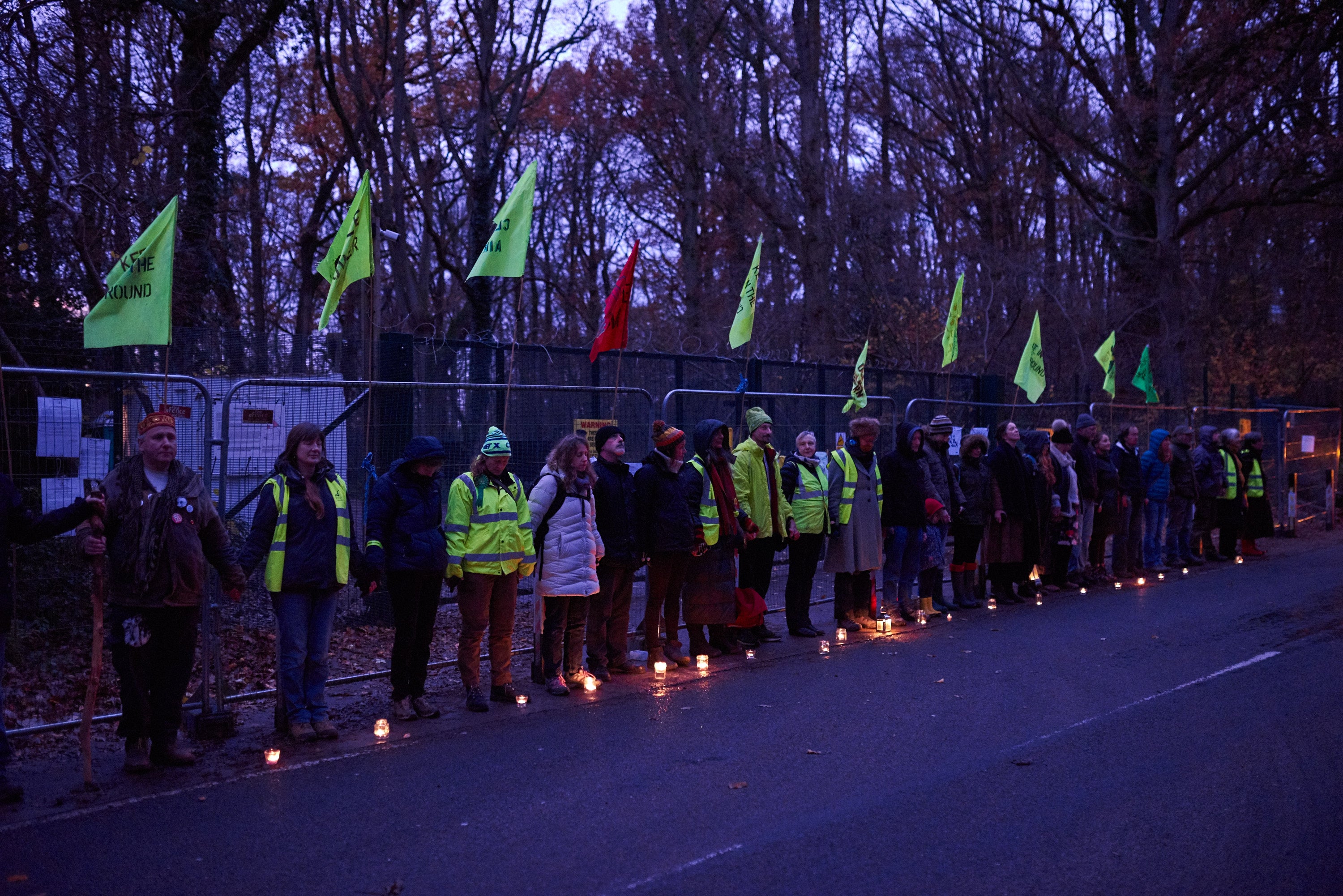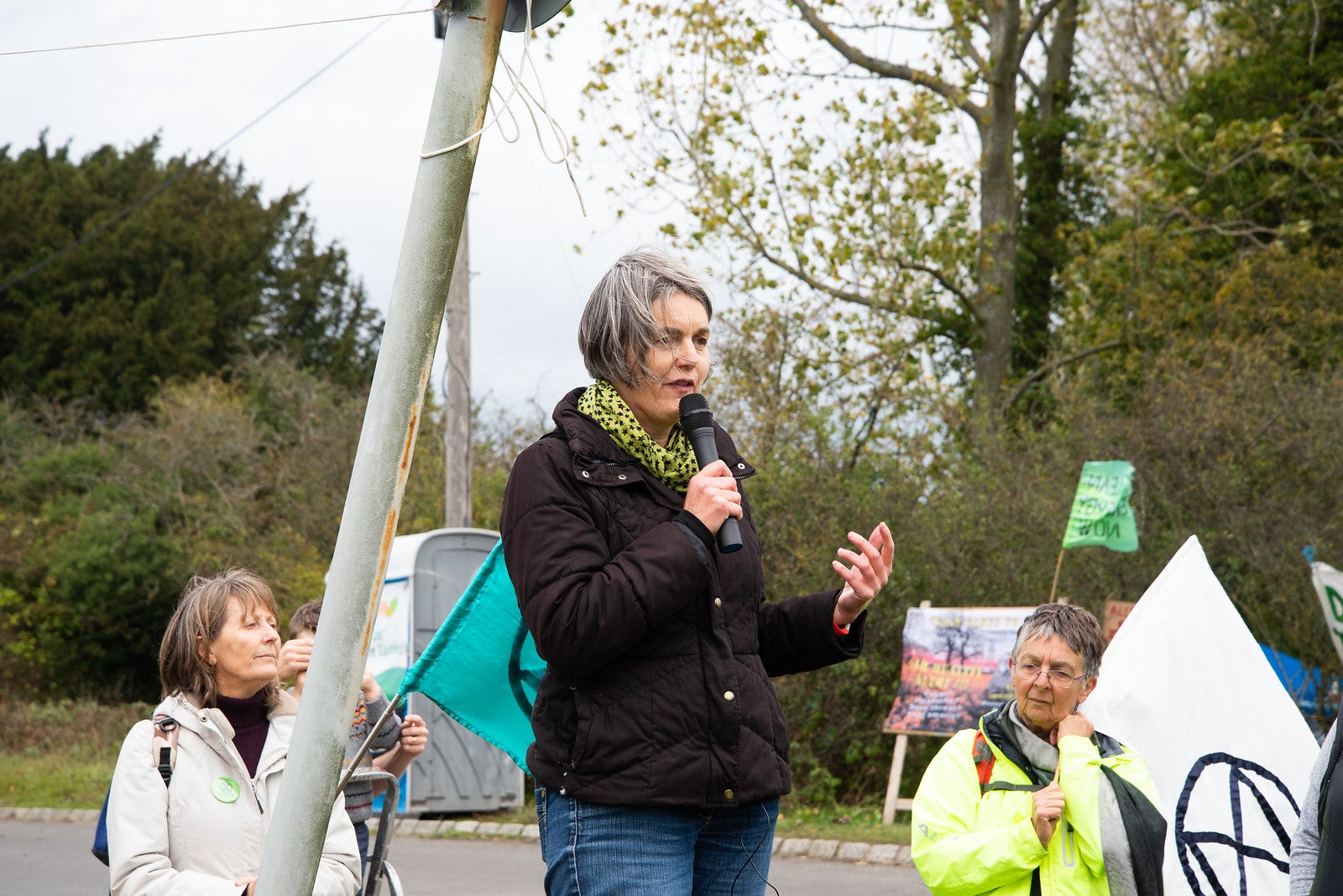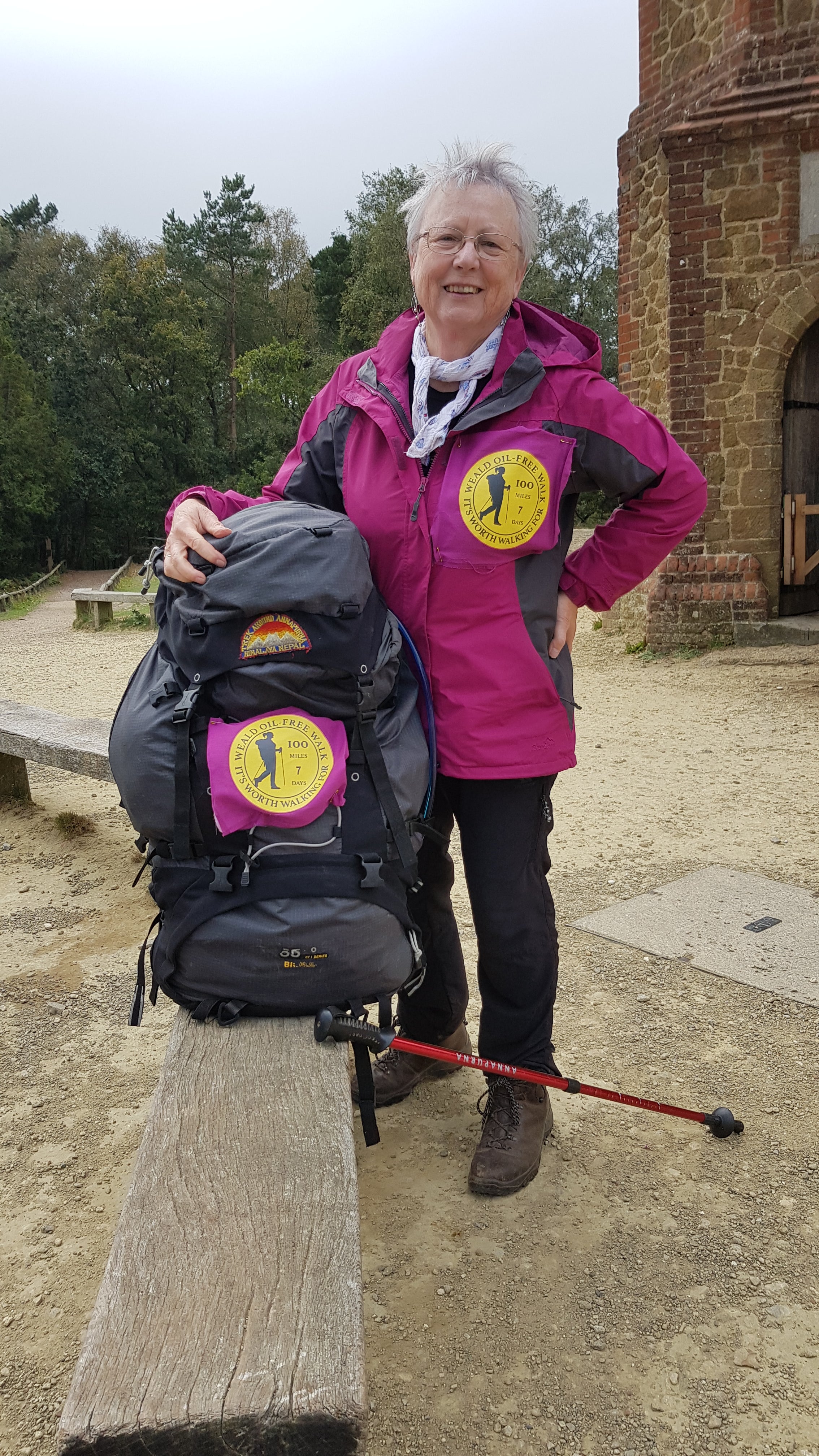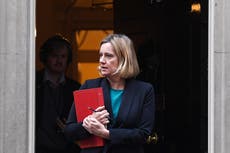The battle to stop more oil drilling in the Surrey Hills
Rory Sullivan investigates the Horse Hill oil site in Surrey, where campaigners want a stop to expansion


A local dispute about the expansion of an oil site in Surrey could have profound effects on how environmental planning decisions are made across the UK, campaigners say.
Until 2019, the Horse Hill oil site, located in the Surrey Hills, only had permission for testing and short-term drilling.
That was until Surrey County Council, shortly after declaring a climate emergency, gave its owners permission to dig a further four wells and extract oil for the next two decades.
If the project gets the go-ahead from the Environment Agency, it will probably result in hundreds of tonnes of oil being produced each day.
Alarmed by the situation, a group of local environmental activists decided to intervene. Almost two years on, their actions have led to a judicial review in the Court of Appeal this November.
Sarah Finch, a former councillor from Redhill, Surrey, is bringing the case in the belief that the council was wrong not to consider the wider climate emergency in its decision-making process.
Rather than only taking emissions produced on site into account, Ms Finch argues that the environmental impact assessment (EIA) should have factored in the greenhouse gases emitted when the oil is burned.
The climate campaigner tells The Independent that she is glad the case is getting the attention she thinks it deserves: “Initially, it might have been seen as one little planning decision in Surrey.
“I see the Horse Hill case as being part of a much wider thing along with Heathrow Airport and the Cumbria coal mine and endless examples of how decisions on the ground do not fit in with big, overarching climate policies.”

To her and others, the government’s ambitious climate targets are at odds with actions taken by local authorities, the best known example of which is Cumbria County Council’s approval of the UK’s first deep coal mine in 30 years. At first, the government tried to take a neutral stance by saying it was a local issue, before later bowing to pressure and announcing a public inquiry into the council’s planning decision.
On this issue, Kate Blagojevic, the head of climate at Greenpeace UK, tells The Independent: “Oil drilling, a new coal mine, airport expansions – all are completely incompatible with our plans to slash emissions, yet these projects are being signed off and the government seems reluctant to intervene.
“We need government policies and investment that discourage the pursuit of high-carbon industries and encourage clean alternatives, such as renewable energy, green transport and housing.”
Rebecca Willis, professor in practice at the Lancaster Environment Centre, knows firsthand how difficult it is for local authorities to act in the absence of a clear government climate framework.
After campaigning for two years to stop the Cumbria coal mine, she points to how local councillors are being made to unfairly grapple with issues of national importance, a theme she writes about in a joint paper published by the Place Based Climate Action Network (PCAN).
“The structure that we think works best is if the national government sets a really clear framework in terms of setting targets and responsibilities for local areas; making planning law much clearer; and then leaving local authorities to get on with the job,” she explains.
Given its pledge to achieve net zero by 2050, it should be up to the government to make policies with a very strong presumption against fossil fuel projects, she argues.
Closer to the corridors of power in Westminster, the potential expansion of the Horse Hill well-site appears to illustrate Ms Willis’ concerns.
Ms Finch attended the decisive SCC meeting on the Horse Hill planning proposal in September 2019 and thought the environmental considerations were not taken seriously enough. “It was really shocking. We put in all these well-referenced, pertinent objections. They didn’t even get a mention,” she remembers.
Ms Finch and her supporters at the Weald Action Group, which fights onshore oil and gas projects, had another setback in November 2020, when their first challenge on climate grounds was rejected by Mr Justice Holgate. However, she heard in late March that Lord Justice Lewison had allowed the case to proceed to the Court of Appeal, since it has “far reaching ramifications” and “the emission of GHG is a matter of considerable public concern”.
Rowan Smith, a solicitor at Leigh Day, the firm which represents Ms Finch, agrees that the verdict of the hearing on 16 and 17 November could be “potentially far-reaching”, as the court will interpret a grey area of the law.
Speaking about the status quo, he says: “Because the [environmental impact] assessment is ultimately taken by the council, they can interpret the rules in one way, but a different council can interpret them in a different way.
“And it’s precisely because of that potential inconsistency, that’s the gap in the current law.”
Mr Smith hopes the Court of Appeal will not side with the first judge’s “narrow interpretation” of the environmental regulations. “From our perspective, that’s slightly unreal because the whole purpose of this project is to extract the oil,” he adds, in reference to the burning of the fossil fuel extracted from the Horse Hill site.
For last year’s hearing, Ms Finch and others had to fundraise thousands of pounds to cover lawyers fees and court fees. They must now do the same for their latest appeal, with the cost of the legal action estimated at £28,000.
Ms Finch says she was pleasantly surprised by the level of financial support they generated last year. One of those who raised funds was Pat Smith, a retired teacher who walked 100 miles, raising more than £5,000 for the cause.

The 71-year-old started in her hometown of Dorking, travelled past five drill sites on the Weald and finished at Horse Hill. “You’re walking through countryside you want to preserve,” she says of her week-long journey.
Ms Smith is proud of her activism. “I think it’s the most important thing I’m going to do in the rest of my life, quite honestly. I’ve got children and grandchildren, and hopefully my legacy will mean a better world.
“I sincerely feel that legal action has got to be the way to go to make any long-lasting change. So that’s why I supported Sarah (Finch) in what she was doing,” she adds.
Katie de Kauwe is a lawyer at Friends of the Earth, an environmental group which made a submission to the High Court in support of Ms Finch’s challenge.
She thinks that there is “short-sightedness” in both local and central government over environmental issues. “It’s no good shouting from the rooftops about the importance of fixing the climate crisis if the actual decisions made don’t then back it up. Surrey County Council has done exactly this, by declaring a climate emergency and then just a few months later approving a huge new oil drilling project.
“Friends of the Earth believes the full climate impact of this project should have been assessed, but the council did not consider the huge impact that will come when all this oil is burned and releases carbon into the atmosphere.”
Surrey County Council refuses to comment on the case, saying: “As this matter will be determined by the Court of Appeal, it would not be appropriate for us to comment at this stage.”
A spokesperson for the Ministry of Housing and Local Government, which became party to the case to defend its National Planning Policy Framework, and UK Oil and Gas PLC, which has the majority stake in the Horse Hill site, similarly say they are unable to comment because it is a live legal matter.
Meanwhile, campaigners hope that the publicity over the Horse Hill and Cumbria coal mine cases spurs the government to establish a climate action framework.
Speaking about the public inquiry into the Cumbria coal mine, Ms Willis says she wants the plan to be shelved but also hopes it “exposes these problems and prompts government to have much clearer and stronger policy”.
“There is no justification for any fossil fuel extraction plant to be developed anywhere in the world,” she adds.
Join our commenting forum
Join thought-provoking conversations, follow other Independent readers and see their replies
Comments
Bookmark popover
Removed from bookmarks